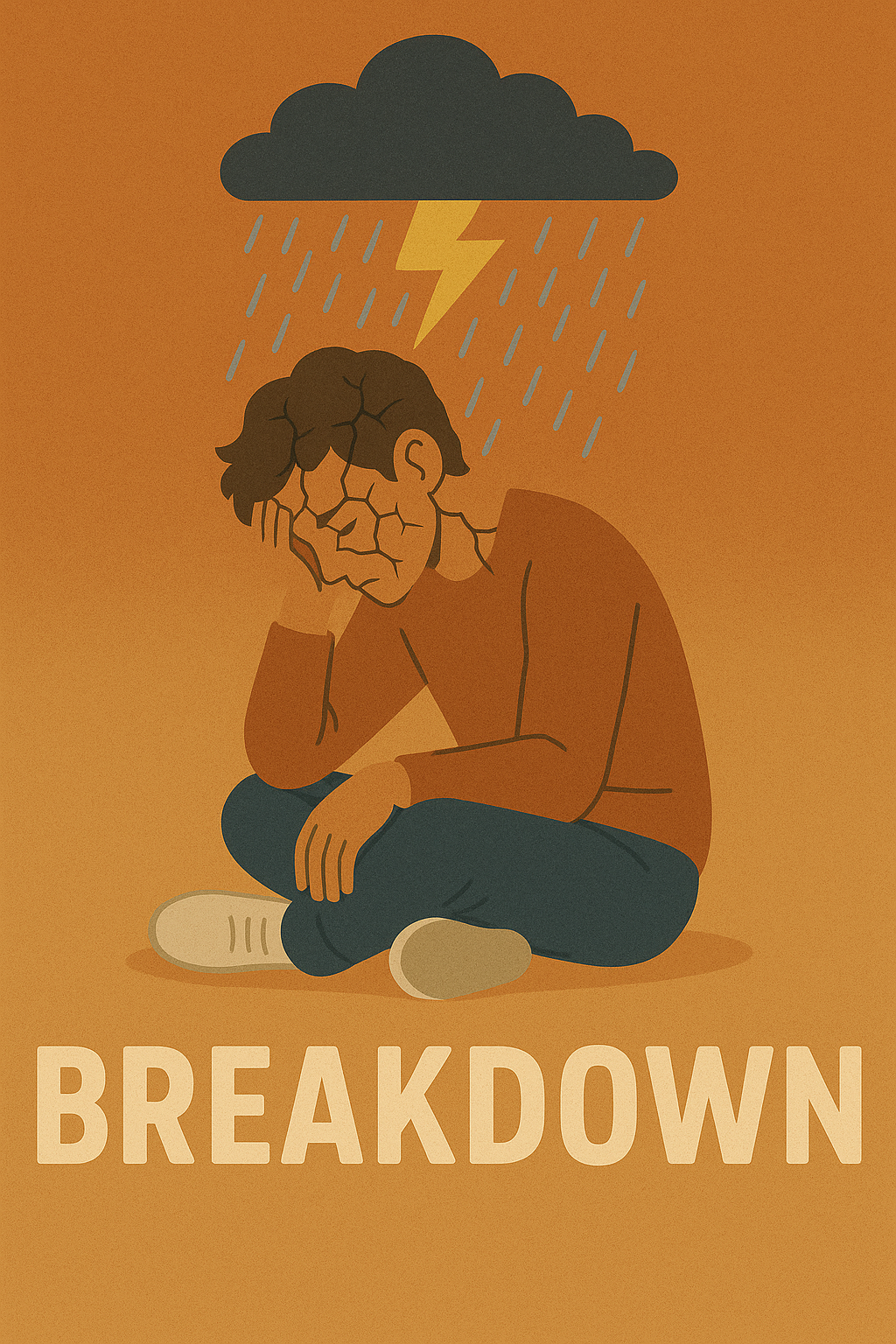What Happens After the Breakdown? Building Real Resilience

Breakdowns often happen in quiet moments.
After a long day. At the back of the bus. In the bathroom at work. On a walk where the thoughts finally catch up. They rarely look like movie scenes, and they’re rarely witnessed.
But here’s the thing: a breakdown doesn’t mean you’re broken.
It means something inside you, some silent part that’s been holding everything together, has finally asked for help.
At thinkWell, we don’t fear breakdowns. We honour them. Because when the dust settles, and the performance ends, what’s left is real. And from there, we can build something far more honest than “bouncing back.”
We can build resilience.
The Myth of the Comeback
In our culture, recovery is romanticised. We love a comeback story: she lost everything, then launched a business; he hit rock bottom, then climbed a mountain. But what we often don’t see is the in-between. The messy, nonlinear, emotionally raw middle.
The truth is: resilience isn’t always loud. It’s not always motivational or Instagram-worthy. Sometimes it looks like getting out of bed. Eating breakfast. Saying “I need help.”
Sometimes resilience is learning to rest without guilt.
Sometimes it’s asking a question you’ve avoided for years.
Rebuilding, Not Repeating
The risk after a breakdown is this: that we try to go back. Back to the schedule, the performance, the perfectionism. But if we return to the same systems that broke us, we’re not recovering, we’re repeating.
That’s why thinkWell’s approach is about rebuilding, not reverting.
We support clients to:
• Understand what led to the collapse (through counselling)
• Create gentle, future-focused goals (with coaching)
• Calm the nervous system and rewire beliefs (using hypnotherapy)
It’s not about going back to who you were. It’s about becoming someone new, someone more integrated, aware, and in charge of their own story.
The Power of Reflective Resilience
You don’t have to bounce back. You can rise differently.
thinkWell calls this reflective resilience: the kind of strength that comes with insight, not in spite of it.
It means asking:
• What were the warning signs I missed?
• What beliefs drove me into overwork, people-pleasing, or suppression?
• What’s the story I want to tell myself now?
These aren’t easy questions. But when answered slowly, kindly, and with support, they become tools for lifelong emotional self-leadership.
Real Stories, Real Change
We’ve worked with clients who:
• Left high-paying jobs after burnout and found meaning in work they love
• Rebuilt confidence after public failure, not by performing, but by owning their truth
• Came to us after panic attacks and learned to manage anxiety without fearing it
These aren’t quick fixes. They’re slow revolutions.
And they start with one truth: you can begin again.
Resilience Isn’t Toughness. It’s Tenderness.
The world teaches toughness. But true resilience, the kind that sustains you, is tender. It’s found in softness, slowness, self-trust.
“Resilience is not about bouncing back. It’s about becoming.” – thinkWell Approach
thinkWell offers a safe container for that becoming. We work gently, with boundaries and evidence-based tools. But we also work bravely, meeting people at the edge of their emotional capacity and walking with them toward something stronger, steadier, and more self-led.
You don’t need to be “better” overnight.
You just need to start where you are.
Because after the breakdown isn’t just survival.
It’s the start of something more real than you imagined.
